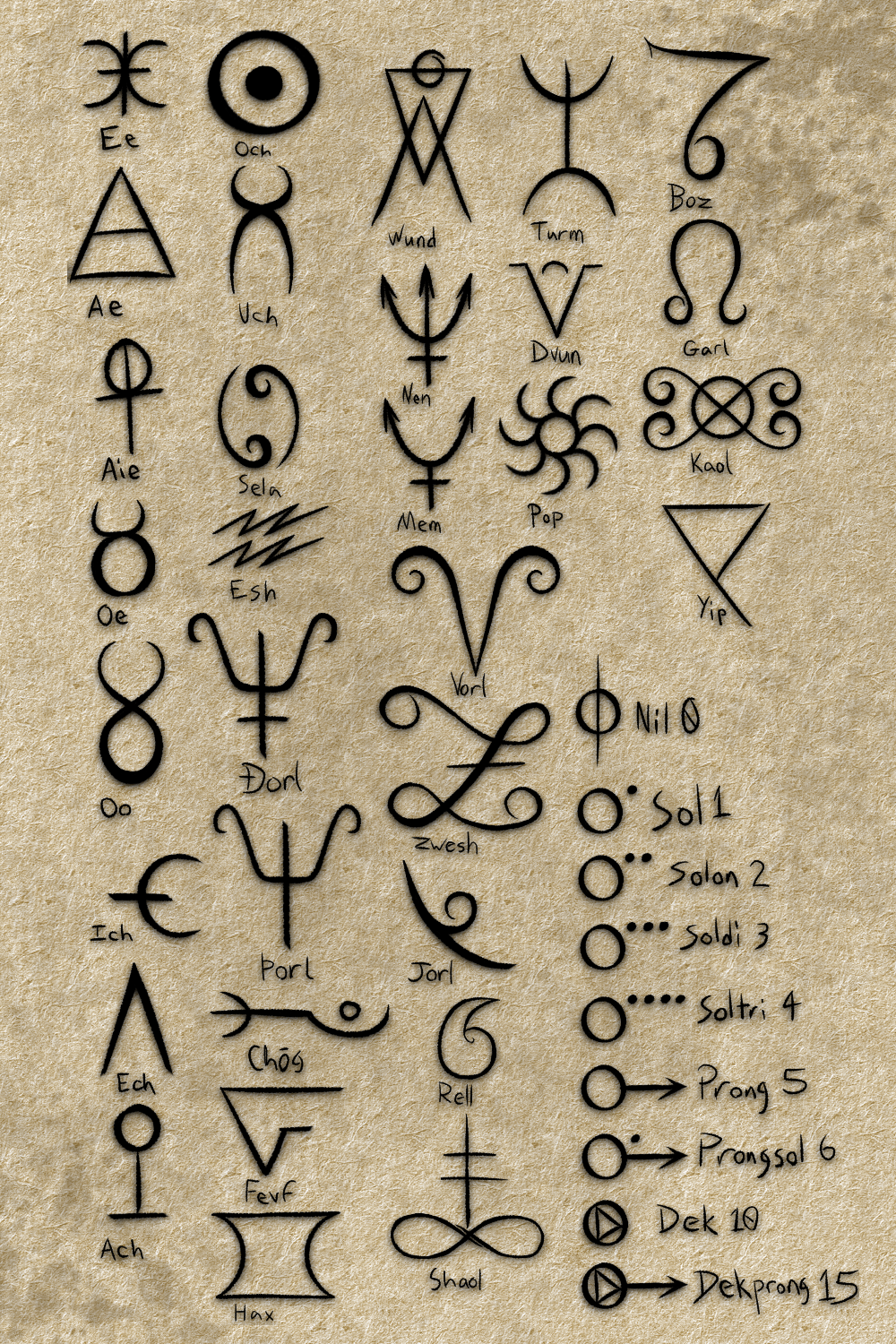Skreitung
Goblintongue
Skreitung is the common language spoken by goblins and other citizens of the Heraðsríki. It is based on a humanoid vocal structure, however, which makes communicating in verbal Skreitung difficult for those with different vocal structures.
Skreitung is spoken across the world thanks to recent globalization, but originated in southwestern Eren. In fact, by technicality, Skreitung is a language family, as it has several regional dialects. The most common is Kruunu, or Crown, Skreitung, though Bay Tradespeak is widely spoken around Eren's western coast and the Maoganai islands. Certain regions have also blended other languages with Skreitung to form local creoles.
Alphabet
See sidebar for representative phonemes.
Structure & Composition
Morphology
Skreitung uses a set of suffixes to signify certain additive aspects of nouns and verbs, such as plurality and tense.- -i denotes plurality
- -yn denotes past tense
- -il denotes future tense
- -di denotes possession when used in a direct subject-object relationship, but present progressive when used in a subject-verb relationship (see Syntax)
Dialects
- Kruunu (southwestern Eren)
- Bay Tradespeak (Bay of Aethoel)
- Ilesian (southeastern Eren)
- Pyrgos Creole (Pyrgos Island)
- Marnish
- Coastal Creole (Ryggfell region)
Dictionary
Phonetic Alphabet
The Skreitung alphabet is composed of 33 symbols, each representing a phoneme. The phonemes and their corresponding letters are:- Ee - "long" E
- Ae - "long" A
- Aie - "long" I
- Oe - "long" O
- Oo - "long" U
- Ich - "short" I
- Ech - "short" E
- Ach - "short" A
- Och - "short" O
- Uch - "short" U
- Yip - Y (consonant)
- Sela - S
- Esh - Sh
- Ðorl - Ð
- Þorl - Þ
- Chōg - Ch
- Fevf - F/Ph
- Wund - W(h)
- Hax - H
- Nen - N
- Mem - M
- Voorl - V
- Zwesh - Z
- Jorl - Djy
- Rell - R
- Shaol - L
- Turm - T
- Dvum - D
- Pop - P
- Boz - B
- Kaol - K
- Garl - G





Comments